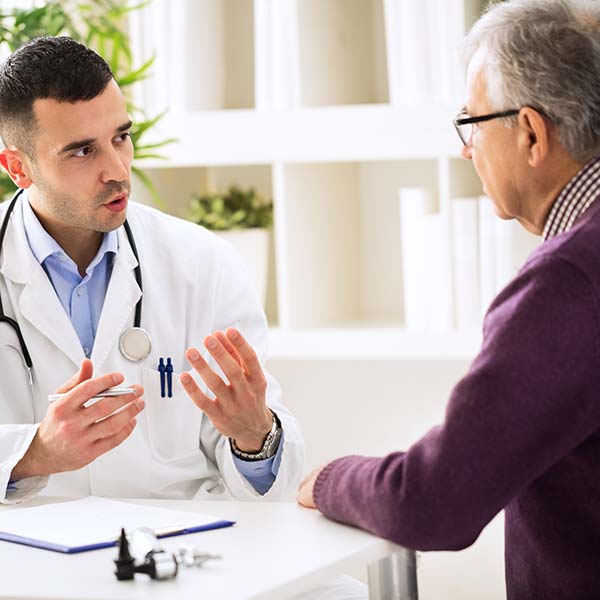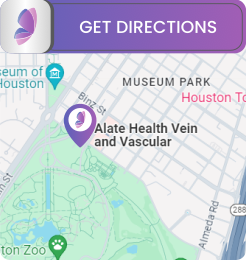Varicose Vein Pain: What It Feels Like and Relief
Varicose vein pain typically causes a persistent aching, throbbing, or heaviness in the legs, along with burning, itching, or muscle cramps. This discomfort often worsens after long periods of standing or sitting and may be accompanied by bulging veins, restless legs, and skin discoloration. If symptoms worsen or complications arise, consult Dr. Andrew Doe, MD, for advanced treatments such as sclerotherapy or laser therapy to improve circulation and reduce pain effectively. For more information, contact us today or book an appointment online now. We are conveniently located at 1213 Hermann Dr Suite 255, Houston, TX 77004.


Table of Contents:
What does varicose vein pain feel like?
How can I tell if the pain is caused by varicose veins?
Can varicose vein pain worsen with prolonged standing or sitting?
Are there lifestyle changes that can help reduce varicose vein pain?
Varicose vein pain can significantly impact your daily life and overall well-being. Typically, patients with varicose veins experience aching or throbbing sensations in the legs, particularly after extended periods of standing or sitting. Many of our patients describe this discomfort as feelings of heaviness, tightness, or leg fatigue, often worsening as the day progresses and becoming increasingly noticeable at night.
Additionally, common symptoms that patients report include sensations of burning, itching, or tingling around visibly enlarged veins. Varicose veins may also lead to muscle cramps, especially at night, disrupting restful sleep and causing further discomfort. Swelling, tenderness, and skin sensitivity in areas surrounding affected veins are also frequently observed symptoms.
Our team of interventional radiology specialists recognizes that the intensity and presentation of varicose vein pain can differ greatly among individuals. Symptoms can range from mild discomfort to severe pain that interferes significantly with daily activities and lifestyle. Fortunately, our minimally invasive, image-guided procedures provide effective relief, helping patients regain comfort and mobility.
If you are experiencing persistent pain, swelling, or other troubling symptoms associated with varicose veins, we encourage you to schedule a consultation at Alate Health Interventional Radiology Clinic.
Pain from varicose veins often feels achy, throbbing, or heavy, typically worsening after prolonged standing or sitting. Patients frequently find relief by elevating their legs or wearing compression stockings. Alongside discomfort, you may experience swelling, itching, or a sensation of tiredness or heaviness in the legs.
Visible signs of varicose veins include twisted, bulging veins beneath the skin’s surface, often appearing blue, purple, or dark in color. Over time, the skin around these veins can become irritated, discolored, or inflamed.
Our expert vascular specialists utilize minimally invasive techniques to accurately diagnose and effectively treat varicose veins, helping you regain comfort and confidence. However, because leg pain may also result from other medical conditions such as arthritis, muscle strain, nerve-related issues, or other circulatory problems, a comprehensive evaluation is essential.
If you’re experiencing leg pain or discomfort that you suspect may be related to varicose veins, schedule an appointment at Alate Health Interventional Radiology Clinic today. Our compassionate team will provide a personalized assessment and an individualized treatment plan aimed at improving your vascular health and overall quality of life.
Varicose vein pain and discomfort can significantly impact your daily activities, especially during prolonged periods of standing or sitting. At Alate Health Interventional Radiology Clinic, we understand the underlying causes and effective treatments for these symptoms.
When you remain stationary, either sitting or standing, for long periods, veins in your legs face increased strain as they must work against gravity to circulate blood back toward your heart. This elevated venous pressure can result in noticeable swelling, aching, heaviness, and discomfort associated with varicose veins.
Prolonged immobility also reduces the beneficial muscle contractions that normally help pump blood upward through your legs. As circulation slows, blood pools within the dilated veins, intensifying symptoms like throbbing, cramps, itching, and fatigue. Fortunately, these symptoms often improve when legs are elevated or with gentle walking and exercise, since muscle activity aids circulation.
If you experience persistent or worsening leg pain from varicose veins due to prolonged standing or sitting, we recommend incorporating brief walks, stretches, and regular leg elevation into your daily routine. For comprehensive evaluation and personalized treatment options, schedule a consultation with our experienced medical team at Alate Health Interventional Radiology Clinic.
At Alate Health Interventional Radiology Clinic, we understand the discomfort and inconvenience associated with varicose veins. Our specialists emphasize that lifestyle modifications can significantly complement the advanced treatments we offer, enhancing your overall vein health.
Maintaining an active lifestyle is a cornerstone of managing varicose vein symptoms. Gentle, regular exercises such as walking, cycling, swimming, or yoga can strengthen your leg muscles, promote healthy circulation, and effectively reduce vein-related discomfort.
Furthermore, managing a healthy body weight can help alleviate pressure on your veins, decreasing swelling and pain. Elevating your legs when resting promotes better blood flow toward the heart, easing discomfort and reducing swelling. Compression stockings are also beneficial, providing gentle pressure that helps improve circulation and relieve symptoms.
Dietary adjustments contribute significantly to managing varicose vein symptoms. A balanced, fiber-rich diet can prevent constipation, thus avoiding additional pressure on leg veins. Reducing salt intake can also minimize swelling. In addition, we recommend avoiding prolonged periods of standing or sitting. If your daily activities involve extended sitting or standing, make sure to take frequent breaks, move around, and stretch your legs to improve circulation.
At Alate Health Interventional Radiology Clinic, our dedicated specialists are committed to guiding you through every step of your vein care journey. Integrating these lifestyle changes with our state-of-the-art interventional radiology treatments, you can effectively reduce discomfort, slow the progression of varicose veins, and maintain healthier veins for the long term. For more information, contact us today or book an appointment online. We are conveniently located at 1213 Hermann Dr Suite 255, Houston, TX 77004. We serve patients from Houston TX, Bellaire TX, Jacinto City TX, Spring Valley Village TX, Stafford TX, Bunker Hill Village TX, and surrounding cities.
Check Out Our 5 Star Reviews


Additional Services You May Need
▸ Adenomyosis
▸ Enlarged Prostate
▸ Leg Ulcers
▸ Joint Pain
▸ Varicose Veins
▸ Uterine Fibroids
▸ Pelvic Congestion
▸ Vascular Malformations
▸ Dialysis/Renal Failure
▸ Port and PICC Placements
▸ Peripheral Arterial Disease
▸ Primary and Metastatic Liver Cancers
▸ Hemorrhoid Artery Embolization (HAE)







